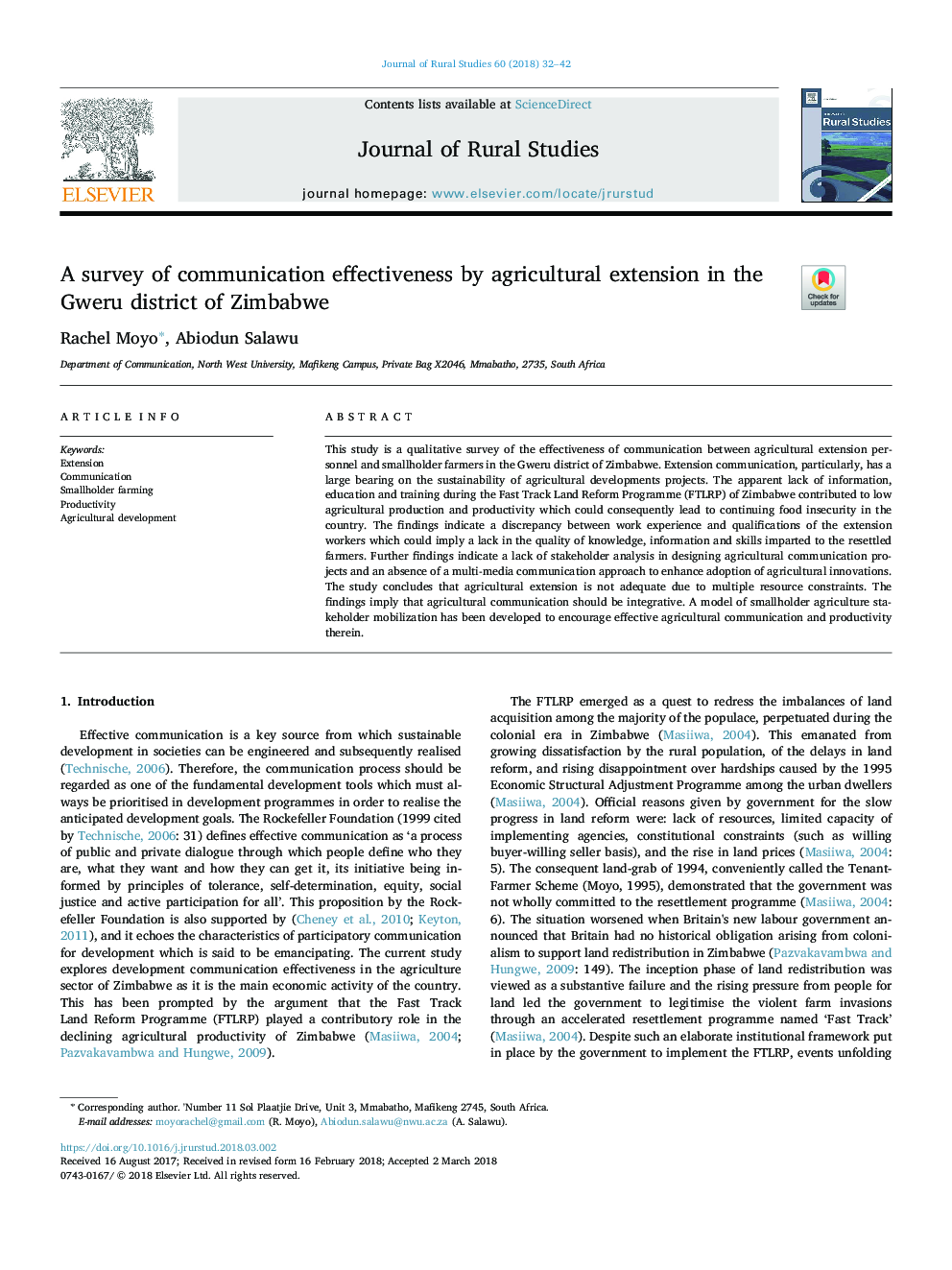| Article ID | Journal | Published Year | Pages | File Type |
|---|---|---|---|---|
| 6545268 | Journal of Rural Studies | 2018 | 11 Pages |
Abstract
This study is a qualitative survey of the effectiveness of communication between agricultural extension personnel and smallholder farmers in the Gweru district of Zimbabwe. Extension communication, particularly, has a large bearing on the sustainability of agricultural developments projects. The apparent lack of information, education and training during the Fast Track Land Reform Programme (FTLRP) of Zimbabwe contributed to low agricultural production and productivity which could consequently lead to continuing food insecurity in the country. The findings indicate a discrepancy between work experience and qualifications of the extension workers which could imply a lack in the quality of knowledge, information and skills imparted to the resettled farmers. Further findings indicate a lack of stakeholder analysis in designing agricultural communication projects and an absence of a multi-media communication approach to enhance adoption of agricultural innovations. The study concludes that agricultural extension is not adequate due to multiple resource constraints. The findings imply that agricultural communication should be integrative. A model of smallholder agriculture stakeholder mobilization has been developed to encourage effective agricultural communication and productivity therein.
Related Topics
Life Sciences
Agricultural and Biological Sciences
Forestry
Authors
Rachel Moyo, Abiodun Salawu,
